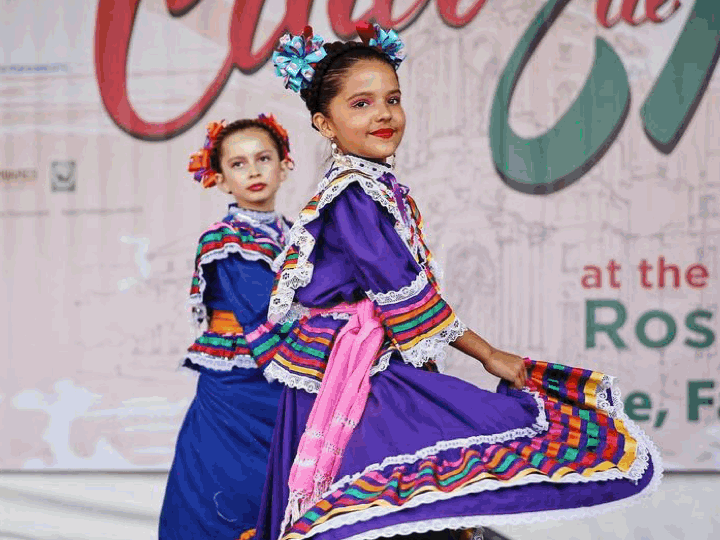CANADIAN MUSIC : FESTIVAL COVERS MUSIC OF CANADA
- Share via
SAN DIEGO — Maple Leaf Month has traditionally pleased local merchants, who welcome Canadian tourist dollars every January. This year’s Maple Leaf Month is receiving a fond artistic farewell with a three-day festival of contemporary Canadian music at San Diego State University.
Thursday afternoon, Joan Winser, consul general of Canada for Los Angeles, opened the festival at SDSU’s Smith Recital Hall to the sound of a brass fanfare by Canadian composer Harry Somers. Winser’s participation was more than symbolic, since half the money for the festival has come from Canadian governmental sources, according to the event’s organizer, SDSU Prof. Jaroslav Mracek.
Among the festival’s 14 Canadian composers is the University of Toronto’s John Beckwith, director of that university’s Institute for Canadian Music and former music critic for the Toronto Star newspaper. An observer of Canadian music for 35 years, Beckwith noted that Canadian music has an identity problem.
“When I look for our (musical) image in the world, it’s not there,” he said. “We’re so much like Americans that our differences usually don’t get noticed. We are like Americans, more or less, but it’s the differences between the more and the less that I think are interesting.”
While this festival is San Diego’s first major encounter with contemporary Canadian music, Beckwith noted that San Diego composers have made an impact in his city. “Roger Reynolds (UC San Diego resident composer) has come to Toronto many times, and we have heard his music. Also, his colleague Joji Yuasa was a composer in residence three or four years ago at the University of Toronto.”
One of Beckwith’s recent works, “Les premiers hivernments,” (“First Winterings”) will receive its West Coast premiere at Saturday evening’s closing festival concert. Based on written accounts of the first settlements in 1604-05 by French explorers on the east coast of Canada, it is a self-consciously Canadian work.
“The work was commissioned for an early music group in Toronto, so I looked for historical appropriateness,” Beckwith said. “The early 17th Century was a time of recorder consorts and French court dances, and the explorers who wrote these prose accounts were educated Frenchmen, so the piece combines the three aspects: Canadian history, early music sounds and winter.”
Saturday’s performance of “Les premiers hivernments” will feature recorder players Lewis and Paula Peterman, gambist Peter Farrell, percussion player Danlee Mitchell, and singers Laurie Romero and Frank Almond.
Avante-garde Canadian composer R. Murray Schafer will not only participate in the conference, but he will also spend two months at SDSU this term as the Stauffer visiting professor in music. An eclectic composer, Schafer’s stage works, electronic music and controversial environmental collages have won him the greatest international cachet among living Canadian composers. A musical iconoclast, Schafer called for a snowmobile on stage in his 1973 orchestral piece, “North/White.”
SDSU’s festival has chosen one of Schafer’s less obtuse compositions, “The Crown of Ariadne” for solo harp and percussion instruments, to perform on Saturday’s 8 p.m. concert at the Dramatic Arts Theatre.
Although Canada did not have a Charles Ives or an Aaron Copland earlier in this century to provide models of national music identity, Beckwith listed the first important stirrings of self-conscious Canadian composing.
“The first attempt was made in the late 1920s, when composers used Canadian folk music in serious compositions,” he said.
Beckwith pointed to Sir Ernest MacMillan, who is usually remembered as the oft-recorded conductor of the Toronto Symphony, as a prominent composer who tried the folk music route.
“Then, after World War II, with the start of Canadian League of Composers, John Weinzweig and Barbara Pentland were among those who established a more professional attitude towards the composer,” he said.
Mracek, a Canadian who has been SDSU’s resident musicologist since 1965, noted that Canadian composers in this century were hampered by highly conservative pedagogues, nearly all of whom were English. Mracek has scheduled a round-table discussion of the conference participants on Saturday to discuss the identity of Canadian music.
More to Read
The biggest entertainment stories
Get our big stories about Hollywood, film, television, music, arts, culture and more right in your inbox as soon as they publish.
You may occasionally receive promotional content from the Los Angeles Times.










